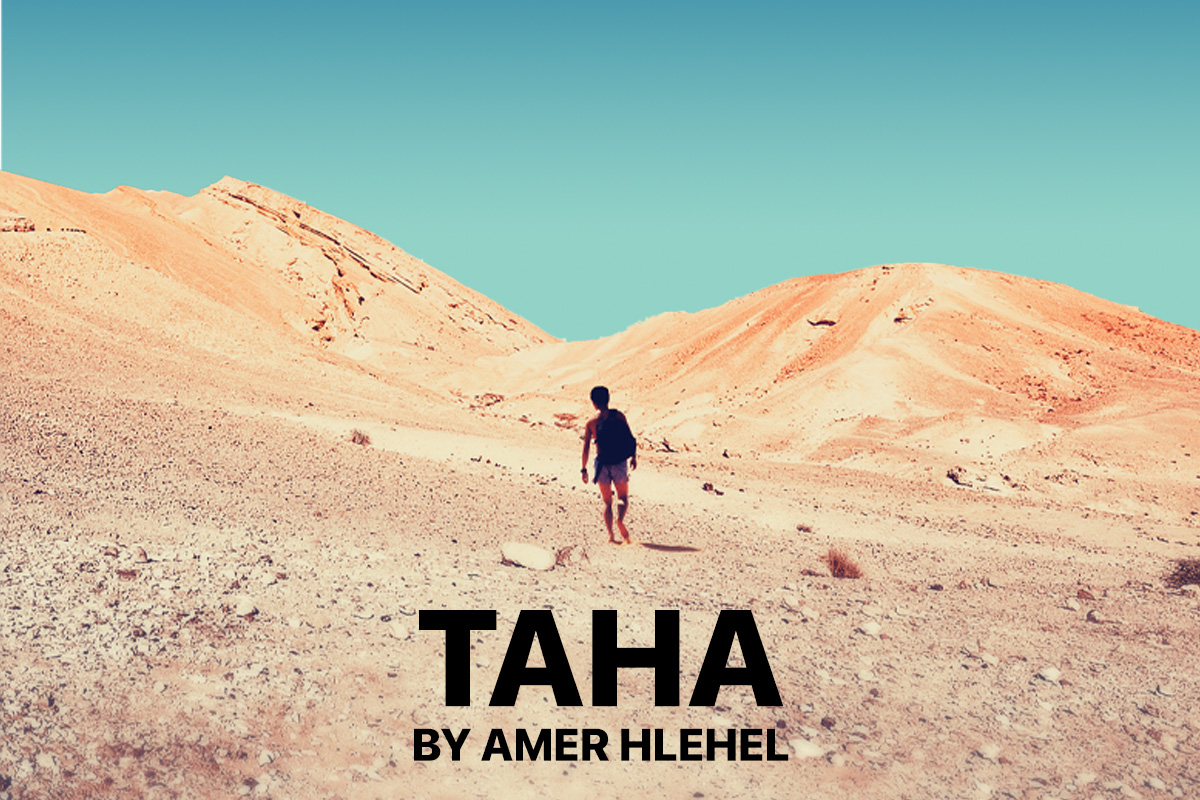Renowned Palestinian actor and playwright, Amer Hlehel, prepares to grace the stage once more with his compelling performance of TAHA. He shares insights into his journey with the play, reflecting on past experiences and the evolving resonance of Taha Muhammad Ali's poetry.
- As you prepare to perform TAHA in Singapore for the second time, are there any new elements or insights you'll be bringing to the upcoming performance that audiences can look forward to experiencing?
First, I am full of excitement to be in Singapore again performing TAHA. I remember that the performances there were one of the best in TAHA’s tour if not the best. The audience was so warm and engulfed me and the show with big love and generous reactions. I am praying that for this visit, I can bring with me the same quality I brought 6 years ago. Theatre is an alive medium to share our stories, and what I have learned through the years is that the same story, the same play, will mean something different every time you perform it – to you as an artist and to the audience – because every day we become different people, with new and different experiences, and that makes our same shows also different.
- Having performed TAHA in various countries, could you share a memorable response or reaction from an audience that particularly resonated with you or deepened your connection to the play?
As I said before, Singapore was a very special experience for me, because I wasn’t expecting such engagement with the show. It was my first time ever in Singapore, and I thought that the audience won’t connect easily to a story that originated from afar. However, to my surprise, it was one of the most memorable shows ever. At the same time, I want to share a very special moment from a performance in Sweden when an old man waited after the show to talk to me. He was an immigrant from Chile, escaped from Pinochet’s regime in the 70’s and said to me: “The great thing about your show is that I could see myself in it, even though you are portraying the Palestinian experience and there are many differences between my story and Taha’s story. But it is so international and human that anyone can see himself through it.”
- What inspired you to write and perform TAHA, and how has this journey impacted your understanding of Taha Muhammad Ali's life and work?
When I first read Taha’s poetry, I felt that I was reading something that I am not used to reading in Arabic poetry, especially in Palestinian poetry. He wrote about the Palestinian Nakba in a very personal, deep, tender, and human way that was very new and you don’t usually find in Palestinian poetry. Then I read Adina Huffman’s biography of Taha, “My Happiness Bears No Relation to Happiness”, and I discovered that Taha’s story was very similar to my grandfather’s story. My grandfather survived the 1948 war and was displaced to Lebanon during the Nakba. When he snuck back into Palestine, he found it was now Israel, and he started to build a life from nothing. What made Taha’s story more relevant than my grandfather’s was that he wrote the finest poetry about his experience.

- TAHA showcases several poems written by Taha Muhammad Ali. Could you share which poem holds a special place in your heart and why it resonates with you?
It is almost impossible for me to choose one poem; they all have a place in my heart. I have been living with these poems for 10 years, recited them in Arabic and English, all over the world. It feels so unfair to choose one over the others, but the most touching poem for me - not just as a Palestinian but also as a human being - was and remained as this:
“We did not cry at the hour of parting
We had no time
We had no tears
We had no farewell
We did not know at the moment of parting
That we are departing
Why should have we cried?
And we were not awake
Nor were we asleep
At the night of our departure
That night, we had no night
Nor firelight
Or absent moon”
It is a poem about people fleeing the cruelty of war and trying to survive, without knowing that their lives will never go back to the same one they had a moment ago.
- In your opinion, what makes TAHA a compelling theatrical experience, and what do you hope audiences will take away from the performance?
TAHA is a very specific play about a Palestinian man who dreamed to be a poet, but life, war and displacement did everything to steal that dream from him. And by the end, he managed to snatch his dream back against all odds. But this play is created in a way that anyone with dreams can feel connected to the story, and we all dream because we are all human beings.
TAHA opens at the KC Arts Centre – Home of STC on 2 Apr 2024. Find out more here.



